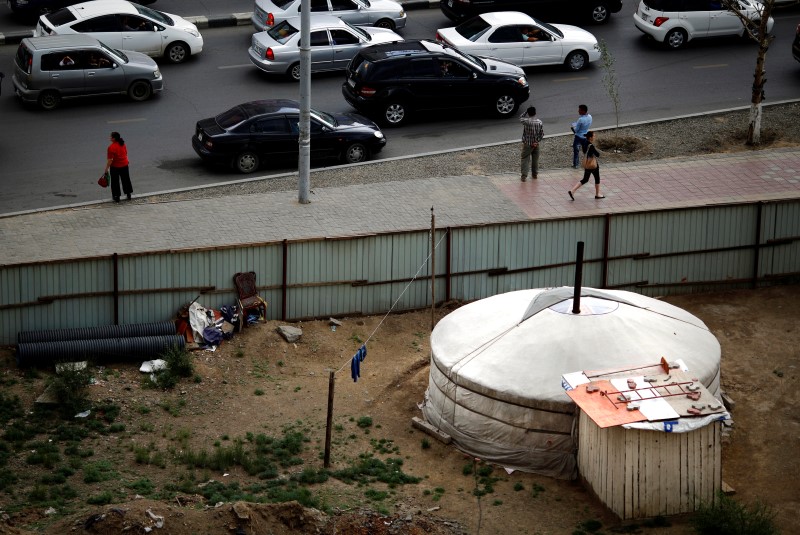ULAANBAATAR (Reuters) - Mongolia's opposition Democratic Party on Thursday tapped former judo star and self-made millionaire Khaltmaa Battulga as its candidate in next month's presidential election in the landlocked country which is facing economic crisis.
With just three million people, Mongolia, a former Soviet satellite best known as the birthplace of the Mongol emperor Genghis Khan, has long stood as an oasis of democracy, sandwiched between autocratic giant neighbours China and Russia.
Mongolia's political transformation since a peaceful revolution in 1990 has been a big plus for foreign investors eyeing its rich mineral resources.
Mongolians choose their next president on June 26 as incumbent president and fellow Democrat Tsakhia Elbegdorj completes his second and final term amid flagging economic conditions following a short-lived mining boom that left few better off.
The Democrats led a governing coalition from 2012 to 2016 before the Mongolian People's Party won back the parliament last year, winning 65 seats in the 76-member legislature.
Battulga, a former judo star turned business tycoon, was a member of parliament before losing his seat last year.
He previously had ministerial roles in roads and transport as well as agriculture, and is known for his criticism of China, especially over concerns Mongolia is too economically dependent on its neighbour.
Battulga will face parliament speaker Mieygombo Enkhbold from the Mongolian People's Party.
Mongolia's economy has slid into problems caused by heavy foreign debt, a collapse in its currency and a slowdown in growth in its biggest trading partner, China.
The International Monetary Fund has postponed a $5.5 billion bailout for Mongolia because of a measure included in the country's 2017 budget that forces foreign firms to bank with domestic institutions.
There have also been concerns about the government's growing authoritarian tendencies.
Last week blank screens and red text warning about threats to press freedom interrupted Mongolian television to protest against planned legal changes media groups say could harshly punish journalists accused of defamation ahead of elections.
The government subsequently backed down.
